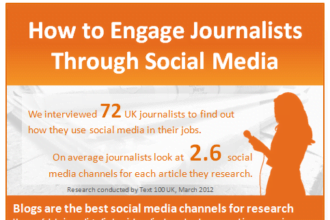Interpreting Your Benefits and Risks of Medical Decisions
Interpreting Your Benefits and Risks of Medical Decisions
Patients and doctors need to be a team in making important health care decisions. Good decision making requires solid, appropriate information but all too often it is either not available or presented in a format that is not of great value. Well grounded decision making is critical because every action has not only the hoped for outcome but also the risk of an adverse outcome. No medicine is devoid of side effects. A diagnostic test may produce a false positive or a false negative. A procedure may or may not cure. For example, choosing statins may lower cholesterol but may also cause muscle damage. A decision to have a mammogram may lead to a suspicion of cancer leading to a biopsy which turns out to be negative – a false positive. Choosing to have a stress test that turns out negative may lead to a sigh of relief and yet the patient dies of a heart attack the next week. A false negative.
These and others like them are high stakes decisions so doctor and patient need good data in order to reach a well informed decision. The information needs to be presented in a manner that is easy to grasp and to visualize in one’s mind’s eye.
Eric Rifkin, PhD and Andy Lazris, MD address these in Interpreting Health Benefits and Risks– A Practical Guide to Facilitate Doctor-Patient Communication. For each of twenty commonly encountered decision points they offered well informed information. Should I get a mammogram at my age? How likely is a stress test to clarify if I have coronary artery disease? What are the risks/benefits of taking a statin? Do I need an annual examination with my primary care physician, and if so what should it include? If I have atrial fibrillation should I take a blood thinner? To each of these and sixteen others they give a concise overview of the data available, pointing out where it is strong or weak. They also include a patient vignette from Dr. Lazris’ internal medicine practice, thus giving each decision issue a compelling connection to real life situations. They then add a third and critical layer, a visual representation that adds clarity to the complex issues.
The visual is called Benefit Risk Characterization Theater (BRCT). It uses the floor plan for a thousand seat theater. Each seat represents a person. So for example, if a person smokes regularly, the question might be what is the risk of death at 25 years of doing so? The theater shows a thousand seats with 198 of them blackened out. This of course means that compared to 1,000 non-smokers, this group of smokers will experience 198 extra deaths compared to the other group. Seeing the blackened seats is a strong statement of risk – more compelling than just indicating a percentage. As the authors state, “the graphic should do the math for the patient.”
Implicit throughout the book is the understanding that great controversy exists within the medical community about the risks and benefits of many screening tests, diagnostic procedures and therapeutic approaches. The BRCT allows the patient to become a co-equal with the doctor regarding the data and thus a real contributor to the decision making process.
For the purpose of shared decision making, the combination of factual data, a patient’s story and especially the visual BRCT allows patient and doctor to approach the question at hand with substantial assurance that whatever decision is made, it was done so in the context of real knowledge.
I have only one criticism of the book and it is leveled squarely at the publisher (Springer), not the authors. It is a paperback priced at $89.99, apparently assuming it will be of interest to a limited number of academics. In fact, it should be in the consultation room of every primary care physician and available to all patients who want to participate in their health care decision making. My recommendation: It is too expense for the average person to buy so ask your library to get some copies and then avail yourself. You may be surprised at what you learn. You will certainly be better equipped to talk with your doctor.







